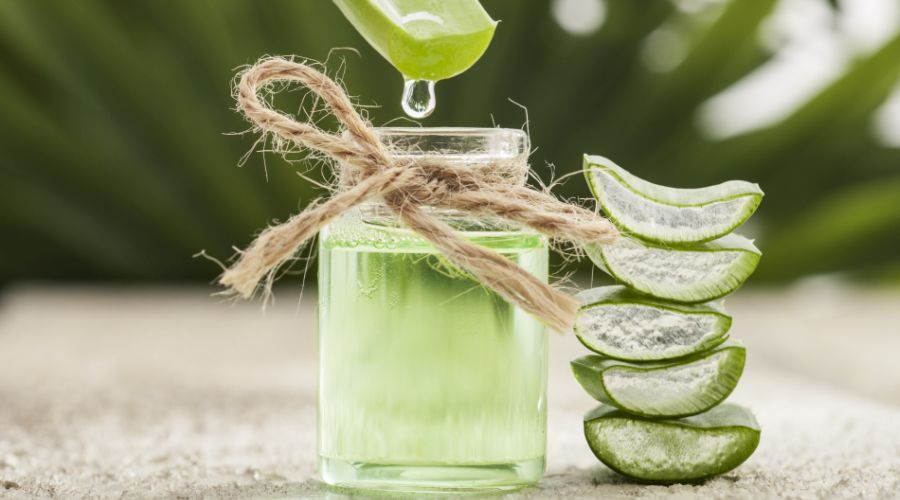Learn the Aloe vera benefits for skin and hair to help heal rashes, burns, acne, and more.
Table of contents:
What is Aloe Vera?
Aloe Vera benefits in skin care.
Aloe Vera benefits for skin.
Aloe vera benefits for hair.
Where to find the Aloe Vera.
How to use Aloe Vera at home.
In a perfect world, everyone’s skin would be lusciously smooth and blemish free, but unfortunately, it’s not. Life happens and along with that comes acne, sunburns, dermatitis and other annoying skin conditions.
So the questions becomes: How do you address these issues while staying true to your passion for everything natural?
One option is aloe vera. It’s a multipurpose plant found in backyard gardens everywhere. When it comes to skin treatments, it’s about as natural as it gets.
What is Aloe Vera?
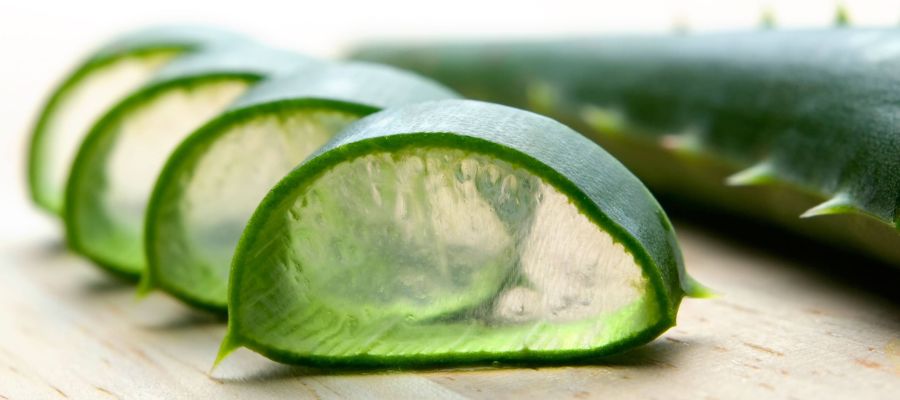
Aloe varieties can be found in nearly every region of the world, but it’s actually of subtropical origin. Known as the lily of the desert and plant of immortality, this grey-green succulent has been used in medicine for thousands of years.
A valuable player in ancient Ayurvedic and traditional Chinese medicine, it’s a highly effective treatment for wounds – especially burns, giving it the nickname “burn plant.”
Besides wound care, this plant has a natural laxative effect and has even been used to restore hair loss and soothe hemorrhoids.
In the Western hemisphere, however, aloe vera is primarily used to nurture and nourish the skin. It’s the star of countless skincare products and for good reason.
Aloe vera benefits in Skin Care
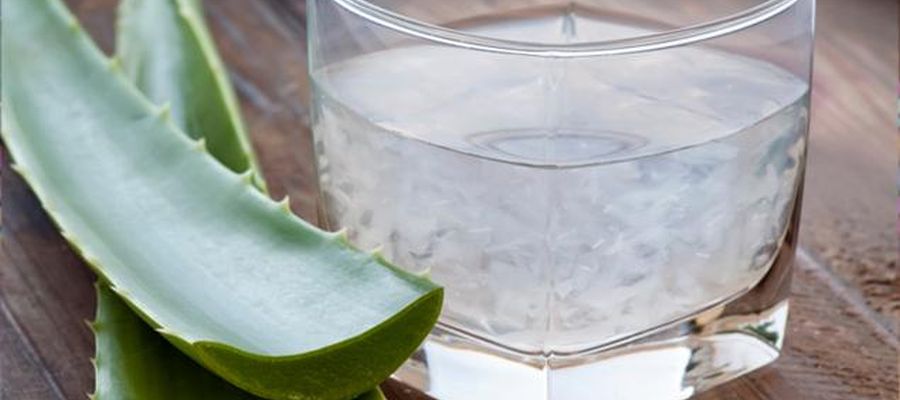
Aloe vera is a natural moisturizer with an emollient effect on the skin (meaning it softens skin by locking in moisture). For this reason, it’s a popular ingredient in lotions and creams. A potent source of antioxidants, it can actually help counteract the effects of aging free radicals in the body.
Rich in B vitamins as well as vitamins A, E and C, aloe also contains crucial enzymes. Some of these include:
- Alkaline phosphatase
- Amylase
- Lipase
- Catalase
- Peroxidase
- Cellulase
As if the antioxidants, vitamins and enzymes weren’t enough, this plant is also home to nutritive minerals such as chromium, calcium, magnesium and zinc. Thanks to an abundance of fatty acids and hormones, it serves as an anti-inflammatory as well.
Research shows that all of these elements combined work to accelerate the healing process of chronic wounds and reduce the severity of pain.
Aloe vera benefits for skin
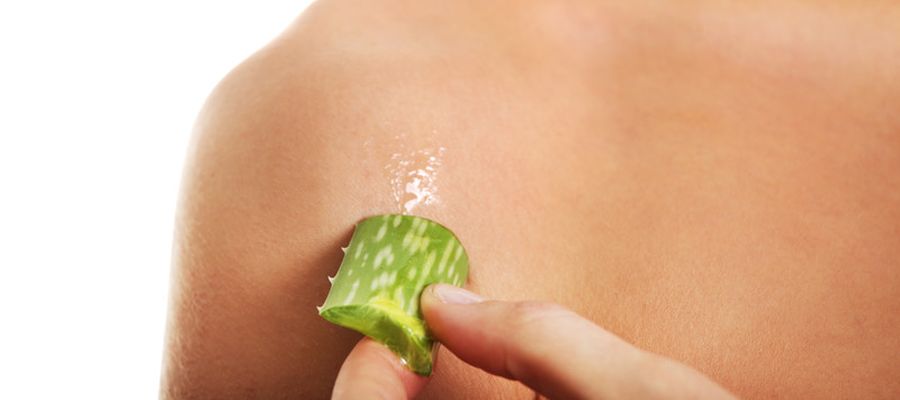
With its nutrient-dense profile, it’s easy to see the potential uses for aloe.
According to a study conducted by Sweden’s Department of Clinical Physiology, its gel is a powerful treatment for psoriasis and similar skin rashes. In fact, the case saw a cure rate of 83% in chronic psoriasis patients. Talk about effective!
Likewise, using aloe for acne is growing in popularity. A rich source of saponin (a natural antibacterial and anti-fungal) makes it a formidable foe against this teenage nightmare.
Possessing active compounds that stimulate skin repair, aloe vera gel is also used to treat minor burns. While the benefits of the juice lend themselves primarily to the skin, it also works to:
- Heal damaged hair
- Calm redness
- Lower cholesterol
- Reduce blood sugar
- Ease acid reflux
- Slow signs of aging
- Relieve muscular pain
- Alleviate arthritis
- Treat frostbite
As you can see, this little plant is full of magic. That is why we use it in nearly all our products, and we made our own gel with added ingredients. It’s too good to leave out!
Aloe vera benefits for hair

What helps your skin very often helps your hair as well. Aloe vera is great for hydrating your scalp and calming itch caused by dermatitis. If you are suffering from dandruff, aloe can help soothe your scalp inflammation.
If you have oily hair, aloe will help cleanse your hair without stripping it bare. Unlike harsh chemicals, it is gentle yet effective.
It is also packed with vitamins hair loves, like Vitamin A, C, and E, along with B12. These work to strengthen hair follicles. and repair strands.
Get healthier stronger hair with a weekly aloe hair mask!
Where to Find the Best Sources
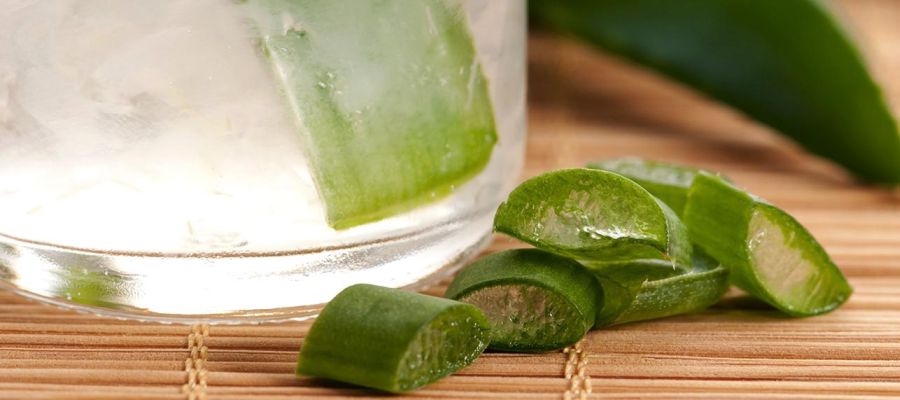
The good news? Aloe is readily available and fairly inexpensive. You can usually find it at your local health food store as well as online.
When shopping, be sure you’re buying from a trusted supplier. With aloe growing more popular, suppliers try to save a buck by diluting the juice with water or even harmful chemicals.
Being a plant, it’s recommended to buy organic to protect against dangerous herbicides. Aloe is available in many forms, including:
- Gel
- Juice
- Actual plant
- Supplement
- Spray
- Cream, lotion, etc
With how useful this plant is, why not keep one at home so you can use it whenever you need it?
Aloe vera benefits at Home
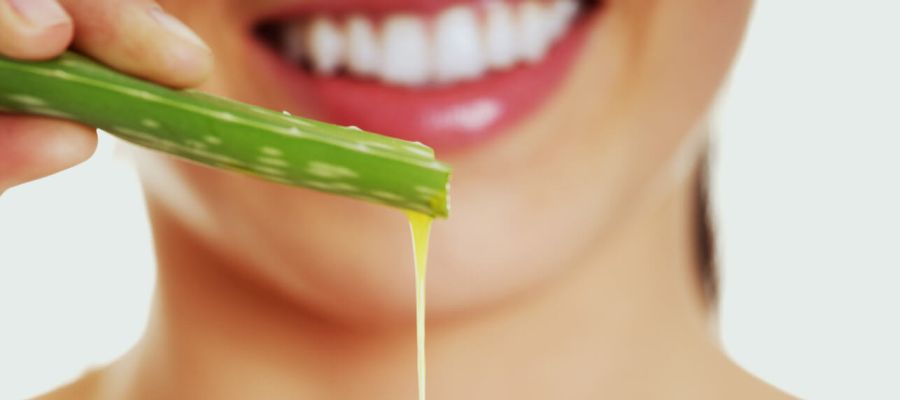
The best way to use aloe vera is to apply it directly to the skin. Although it has a reputation in traditional medicine as a laxative and is sometimes used orally, some reports have indicated liver toxicity and other side effects when ingested. It’s advised to consult your physician before consuming.
For topical use, you can apply it directly to the affected area, avoiding severe, open wounds. Ever wondered how to make aloe vera products? It’s easy!
Just squeeze the gel from an aloe vera leaf and run it through a blender. Add ½ cup organic coconut oil and blend until smooth. Store in the refrigerator and use like any other moisturizer or cream.
If you want to try an aloe vera gel with added ingredients for even more benefits, then check out our Aloe Vera+. It comes with Manuka Honey, Cucumber, Extract and Citrus Plant Stem Cells for even more benefits!
Learn More
Summary

Whether in the form of juice, gel or extract, aloe vera is an excellent choice for many skin conditions. Readily available and inexpensive, it also lends itself to DIY preparations and can be grown by the average gardener.
If you live in a warm climate and have a green thumb, why not grow one of nature’s most potent healing ointments right in your backyard? If not, thankfully there are reputable, skincare companies to help you score your perfect product.
Have you experienced the power of aloe vera? Let us know how you used it!

